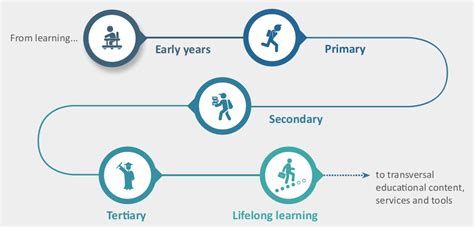Obsessive Compulsive Disorder (OCD) is a mental health condition that can significantly impact both personal and professional lives. Characterized by intrusive thoughts and repetitive behaviors, OCD affects how individuals manage their daily routines, relationships, and work responsibilities. Understanding OCD is crucial for recognizing its influence on personal growth and career development. While it presents challenges, those living with OCD can harness effective strategies for self-management and leverage their unique traits for success in both life and work. This article explores the symptoms of OCD, its effects on personal and professional environments, available resources, and how individuals with OCD can achieve personal and career growth.
Join terylblog.com as we delve deeply into this topic.
1. Definition and Symptoms of Obsessive Compulsive Disorder
Obsessive Compulsive Disorder (OCD) is a mental health condition characterized by persistent, unwanted thoughts (obsessions) and repetitive behaviors or mental acts (compulsions) that an individual feels driven to perform. These obsessions often create significant anxiety or distress, leading individuals to engage in compulsive actions as a way to alleviate the discomfort. However, these behaviors typically provide only temporary relief and can interfere with daily life.
Common obsessions include fears of contamination, intrusive thoughts about harm, or a need for symmetry and order. Compulsions may involve repetitive hand washing, checking, counting, or organizing. Individuals with OCD often recognize that their obsessions are irrational, but they feel powerless to stop the compulsions.
OCD can vary in severity, with some people experiencing mild symptoms and others facing debilitating interference in their personal, social, or professional lives. It is important to distinguish OCD from normal habits or routines, as OCD-driven behaviors are excessive, time-consuming, and often disrupt the individual’s ability to function. Understanding the definition and symptoms of OCD is the first step in recognizing its impact and finding effective ways to manage it.

2. Impact of OCD on Personal Life
Obsessive Compulsive Disorder (OCD) can have a profound impact on an individual’s personal life, often disrupting daily routines, relationships, and emotional well-being. The intrusive thoughts and repetitive behaviors associated with OCD can consume significant time and mental energy, leaving little room for spontaneity or relaxation. Simple tasks, such as cleaning, organizing, or personal hygiene, can become overwhelming and time-consuming due to compulsions aimed at reducing anxiety.
Relationships with family, friends, and romantic partners may also be affected. Those with OCD might struggle to explain their behaviors or may feel embarrassed by their compulsions, leading to isolation. Loved ones may become frustrated or confused, not fully understanding the challenges of living with OCD.
Additionally, the emotional toll of OCD often includes feelings of frustration, guilt, and shame, as individuals may recognize that their behaviors are irrational but feel powerless to stop them. This constant inner conflict can lead to increased stress, anxiety, or even depression. Overall, the disorder can create a sense of being trapped in a cycle of obsessive thoughts and compulsive actions, making it difficult to fully engage in daily life or personal relationships.

3. OCD in the Workplace
OCD can significantly impact an individual’s performance and experience in the workplace. The disorder’s symptoms—obsessive thoughts and compulsive behaviors—can interfere with job tasks, productivity, and professional interactions. For example, individuals with OCD may spend excessive time on tasks due to perfectionism or repetitive checking, which can delay project completion and reduce efficiency. This preoccupation can lead to difficulties meeting deadlines and maintaining a steady work pace.
In workplace environments, OCD symptoms might manifest through overly meticulous work habits, frequent reassurances or validations from colleagues, or avoidance of certain tasks due to fear of contamination or errors. These behaviors can be misunderstood by coworkers and supervisors, potentially affecting team dynamics and workplace relationships.
Furthermore, the stress of managing OCD symptoms at work can exacerbate the condition, leading to burnout or anxiety. The need for frequent breaks or adjustments to work routines might be perceived as a lack of commitment or professionalism, further complicating the individual’s experience.
Supportive workplace practices, such as flexible work arrangements or understanding management, can help accommodate employees with OCD. Creating an environment that recognizes and addresses these needs can improve job satisfaction and performance, fostering a more inclusive and productive work setting.

4. Resources and Treatments for OCD
Several resources and treatments are available for managing Obsessive Compulsive Disorder (OCD), offering significant relief and support for those affected. Cognitive Behavioral Therapy (CBT), particularly Exposure and Response Prevention (ERP), is a highly effective treatment. CBT helps individuals confront their obsessions and gradually reduce their compulsive behaviors by breaking the cycle of anxiety and avoidance.
Medication is another common treatment option. Selective serotonin reuptake inhibitors (SSRIs), such as fluoxetine or sertraline, are often prescribed to help manage OCD symptoms by balancing brain chemicals related to anxiety and mood.
Support groups and therapy programs provide valuable peer support and guidance. Connecting with others who understand the challenges of OCD can offer emotional support and practical coping strategies.
Online resources and helplines also offer information and guidance, including educational materials and access to mental health professionals.
It is essential for individuals with OCD to work closely with healthcare providers to tailor treatment plans to their specific needs. A combination of therapy, medication, and support can help manage symptoms effectively, leading to improved quality of life and better overall well-being.
5. Personal and Career Growth with OCD
While Obsessive Compulsive Disorder (OCD) presents challenges, it can also offer unique opportunities for personal and career growth. Individuals with OCD often develop strong attention to detail, high standards, and perseverance due to their experience with the disorder. These traits can be advantageous in careers that require meticulous work and thoroughness, such as research, quality control, or project management.
Personal growth can occur as individuals learn to manage their symptoms and build resilience. Overcoming the daily challenges of OCD can lead to increased self-awareness, self-discipline, and problem-solving skills. These qualities can enhance personal development and boost confidence.
Additionally, the process of seeking treatment and support for OCD can foster growth in emotional intelligence and interpersonal relationships. Engaging in therapy and support groups can improve communication skills and empathy, helping individuals navigate personal and professional interactions more effectively.
Employers who provide a supportive environment, including flexible work arrangements and accommodations, can help individuals with OCD thrive. By focusing on strengths and leveraging their unique skills, those with OCD can achieve significant success and satisfaction in both personal and career pursuits. Embracing their experiences and integrating them into their professional lives can lead to a fulf
Understanding Obsessive Compulsive Disorder (OCD) reveals its profound impact on personal and professional lives. With appropriate resources and treatments, individuals can manage their symptoms effectively. By leveraging their unique strengths and finding supportive environments, those with OCD can achieve significant personal and career growth, turning challenges into opportunities for success and fulfillment.
terylblog.com
